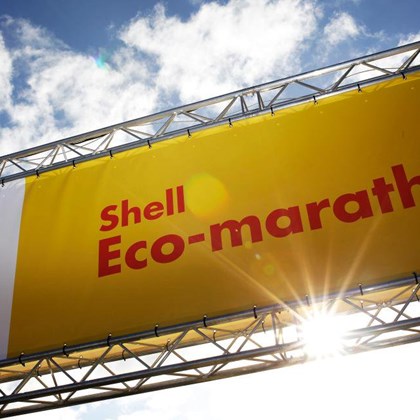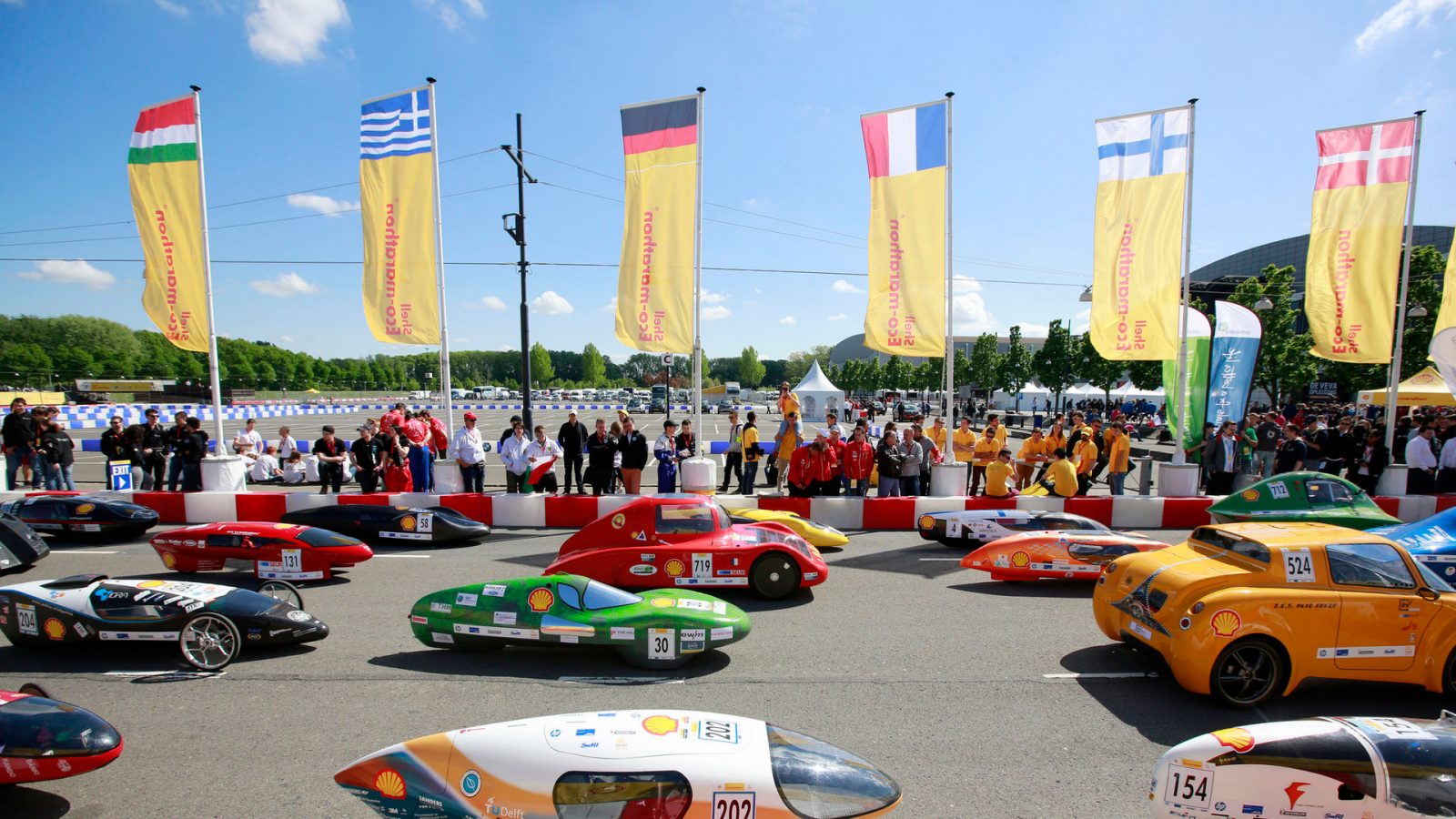Shell Eco-Marathon
A worldwide competition with events that take place in Europe, Asia and the Americas.
Purpose
The aim of Shell Eco-marathon is to inspire teams of school and university students to design and build vehicles and to test their performance. The team that travels the greatest distance using the least amount of fuel wins. The institution is an excellent opportunity for the leaders of today and tomorrow who seek to play an active role in addressing the energy challenges of the planet to participate.
Aside from performance and competition, Shell Eco-marathon is an educational programme that incorporates the values of sustainable development at the level of respect for diversity, energy management and environmental protection.

By taking part in Shell Eco-marathon, young people learn more about how to manage a project from beginning to end – from design to securing funding. The aim is to design a vehicle with low fuel consumption within the constraints of a budget.
To achieve that level of fuel economy, the teams work for an entire year as part of a truly technical programme to achieve results.
As they explore new ideas, Shell Eco-marathon participants build the cars of tomorrow with better fuel consumption management, greater fuel savings and cleaner combustion.
Teams can take part in one of the following categories:
Institutions' Categories
- Schools
- Post-secondary technical and vocational institutions
- Universities and engineering institutions
- Independent organisations (only in the Prototype vehicle category)
Vehicle Categories
- Prototype
- Urban Concept
Energy Sources
- Petrol
- Diesel
- Electric Battery
- CNG
- Hydrogen
In 1985, the first year the Marathon was held in Europe, the winning team travelled a distance of 680 km on 1 litre of petrol. Nowadays, competitors use a variety of approaches - from developing cars using 3D printers to using alternative forms of energy for fuel. The record to date is 3,771 km travelled on 1 litre of petrol, a distance equivalent to travelling from London to Paris and back on just 1 litre.
Greek participations for 2017
Team «Prometheus»
Team «Prometheus» represents the School of Electrical and Computer Engineering at the National Technical University of Athens, with their pioneering electrically powered vehicle, Pyrforos. This is the team's ninth consecutive participation in the competition in the Prototype (Electric Battery) category. In this category, the vehicle design focuses on minimising drag force and maximising efficiency, which is apparent from the futuristic and especially aerodynamic vehicles that take part.
Team «TUC Eco Racing»
Team «TUC Eco Racing» is from the School of Production Engineering and Management at the Technical University of Crete, with the advanced city vehicle, Spyros Louis. This is the team's 10th time taking part in the Eco-marathon in the Urban Concept (Hydrogen) category, in which the vehicles more closely resemble ordinary passenger cars.
Team «Poseidon»
Team «Poseidon», from the departments of Mechanical Engineering, Electrical Engineering, Automation Engineering and the departments of the School of Management and Economics at Piraeus University of Applied Sciences, with the innovative electrically powered vehicle, Triiris. This will be the team's sixth participation in the competition in the Prototype (Electric Battery) category.
In this context, George Hatzopoulos, General Manager of Coral S.A., said:
"It's wonderful to see students from all over Europe focusing their energy in overcoming technological barriers for the purpose of finding solutions for issues of mobility in future. There is an exceptionally creative atmosphere and collegiality that make the Marathon a special and very educational event. We are particularly proud that Greece is a part of it again this year, proving that the new generation never stops fighting for a better future. Coral actively supports the Greek teams and their endeavours."
For more information about Shell Eco-marathon, see: http://www.shell.com/energy-and-innovation/shell-ecomarathon.html


